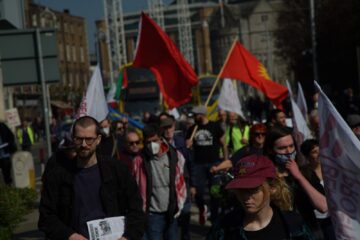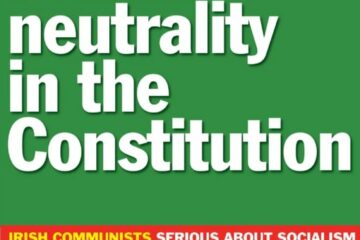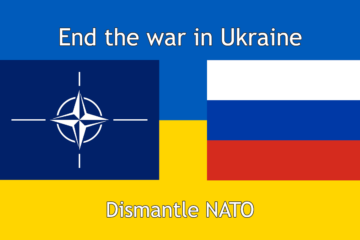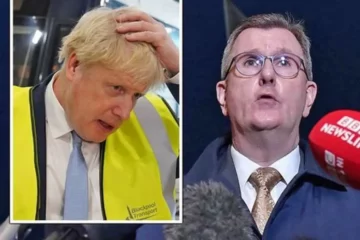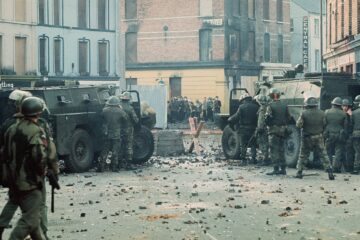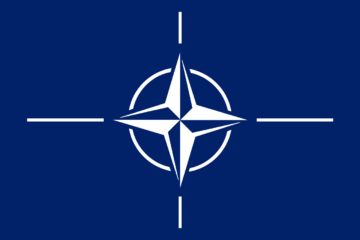National Executive Committee, Communist Party of Ireland
21 October 2017
At the National Executive Committee meeting of the Communist Party of Ireland there was a discussion of the growing housing crisis in the north and south of the country. In particular, the Irish government has failed to address in any serious way either the growing number of families who are homeless or the increasing number of families facing eviction.
The housing crisis stems from a combination of government priority given to the private rental market over the provision of publicly funded and owned housing and the role of global vulture funds, now moving into the private rental market, in the expectation that vast profits can be made from the growing pressure of those seeking a place to live.
The government’s and state’s strategy is to establish precarious employment and short-term contracts as the norm in the economy, coupled with precarious shelter—that is, people relying upon the private rental market alone. Capitalism and neo-liberal thinking created this crisis, and using those very same methods will not solve the problem but can only further exacerbate it.
They have built in insecurity, both in work and in the securing of a home. Only the massive national state-run construction of public housing can solve this deepening crisis. What is needed is public housing, tailored to tenants’ ability to pay. It has been shown in the past that the state, with the local authorities, has the capacity to implement a public housing programme. It seems that the current government is opposed to this in principle, committed as it is to neo-liberal ideology.
The Communist Party welcomes the establishment of the Campaign for Public Housing,which will endeavour to mobilise the working people around the central demand for a state-funded public house-building programme.
The campaign for the Repeal of the Eighth Amendment to the Constitution continues to gather momentum, as shown by the participation of tens of thousands in the demonstration on the 30th of September, especially by young women.
In the North of Ireland also there is a manifestly growing campaign for a change in the law governing abortion. This is seen in the size of the demonstrations and the link being made with other aspects of reactionary social policy, such as the “2-Child Cap and Rape Clause” (British government policy limiting families to claiming tax credits for their first two children, unless women prove that their third child was conceived through rape or during an abusive relationship). There is a spirit of co-operation between the campaigns in both parts of the country.
The recent budget presented by the Irish government was framed within the fiscal straitjacket laid down by the European Union. The government and state must produce a balanced budget. So we had tax cuts for better-paid workers and the professional and business classes. This can only mean further cuts in public spending, which hit hardest at working people, who rely upon these services. It was a budget to see who could retain and secure the votes of those relatively privileged sectors in the next election, with Fine Gael attempting to outflank Fianna Fáil.
The NEC also discussed the continuing paralysis in the Northern Ireland Assembly established under the Belfast Agreement. What is clear is that leading sections of unionism are opposed to any weakening in what it sees as the “British identity” of the North of Ireland. This is expressed in its opposition to an Irish Language Act, previously agreed upon as part of the St Andrews Agreement, and in the strengthening of the DUP’s support for and influence within the British Conservative government.
At the same time the British state presents itself as a disinterested party, waiting until the two local tribes come to their senses and learn to live with each other. That is not the case. Its strategic political and economic interests in Ireland as a whole are still extremely important to it.
Not only do the DUP and Sinn Féin appear incapable of negotiating the return of the Northern Ireland Executive but where they do agree on an issue, such as the need to protect jobs at the Bombardier aircraft plant in Belfast, they have been shown to be irrelevant. Having milked the public purse for £2 million of investment, Bombardier now seemed ready to make a deal with the European aerospace heavyweight Airbus, giving no assurances to the Belfast work force. What is needed is a trade-union-led mobilisation of working people in the North, with cross-party support and with the solidarity of workers in the South, to press home the need for this skilled work force of over four thousand and the value of its extensive supply chain as part of a public-sector-led industrial policy, planning and investment action plan.
While the phoney war on Brexit continues, it appears that Irish interests are being used as a pawn in the “talks, no talks” saga. It is clear that significant and powerful forces in Britain, the EU and the United States want a rerun of the referendum to secure a reversal of the democratic decision of the people within the British state.
Workers must be mindful of what is at stake. It is the big monopolies, both manufacturing and finance, in Britain and on the Continent, that benefit most from and are the driving force behind the European Union and the attempt to undermine a clear disentangling of the UK from the imperialist institutions of the EU. Policies for a People’s Brexit have to be clearly stated and fought for.



